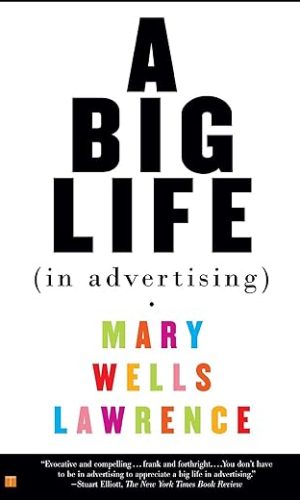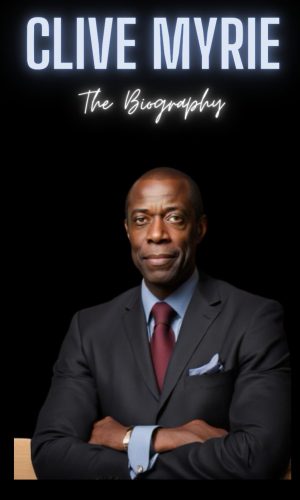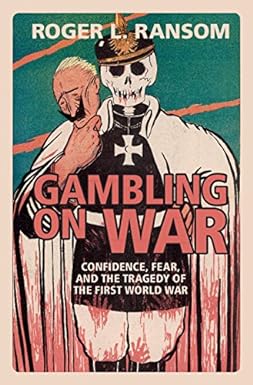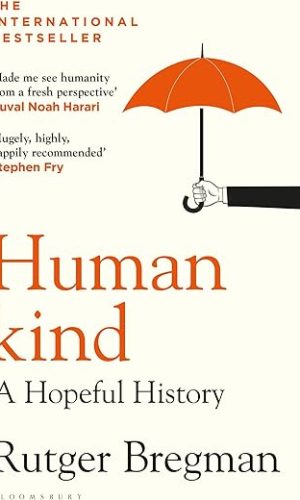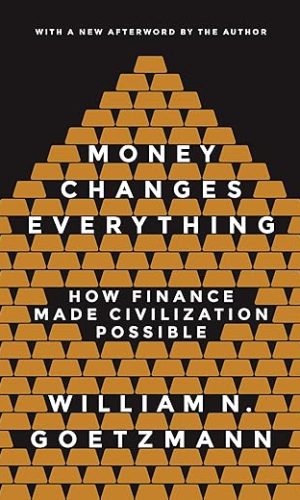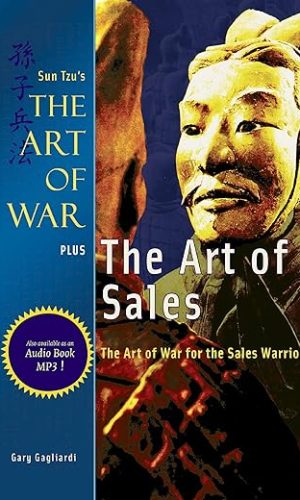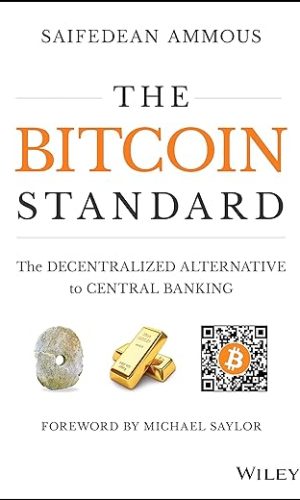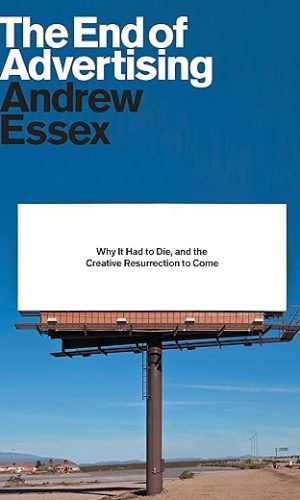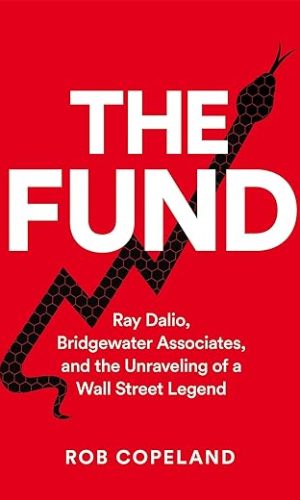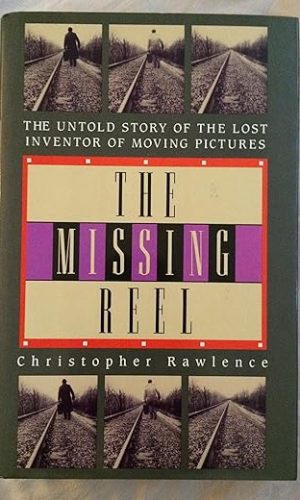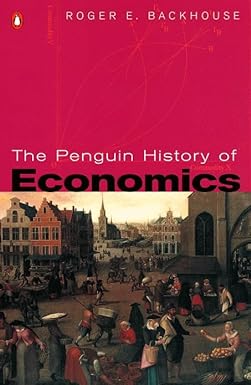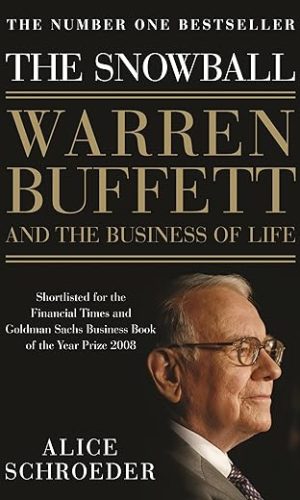Biographies & Histories
-
(Out)Law: From Teenage Mum to Legal Trailblazer
(Out)Law is a journey of survival and resourcefulness, exploring the remarkable life of Alice Stephenson, who defied adversity to become a beacon of change in the legal world. At just 18, Alice faced the challenges of teenage motherhood and homelessness, yet refused to be defined by her circumstances. Determined and focused, she embarked on a path of education, navigating the complexities of university while juggling her responsibilities as a young mother.
Having qualified as a solicitor, Alice had proven that barriers could be broken down thanks to grit and passion, but her story doesn’t stop there. In 2017, she set out to disrupt the legal industry by founding her own law firm – Stephenson Law.
(Out)Law shines a light on the author’s defiance of societal expectations when coupled with drive and ambition. It explores the struggles and challenges that women and those whose faces don’t fit the mould encounter, as Alice stands against the norms of a male-dominated, elitist legal profession.
Taking aim at archaic traditions, outdated perspectives, and an industry rife with discrimination, (Out)Law explores how innovation, inclusivity and the humanisation of lawyers are the key to delivering change within one of the world’s oldest professions.
And, oh yes, how tattoos won’t bring the skies crashing onto people’s heads, either.
Read more
£14.20 -
A Big Life In Advertising
The first woman president of an advertising agency and the first woman CEO of a company on the New York Stock Exchange tells her “riveting story: How she shattered every glass ceiling and became a Madison Avenue legend.”*
From her role as fledgling copywriter at Doyle Dane Bernbach — the agency that made big-car-obsessed America fall in love with the funny little Volkswagen — to her brilliant campaign for Braniff Airways that had the flying public scrambling for seats on wild-colored planes to founding the fastest-growing ad agency in history, Mary Wells Lawrence’s life in advertising couldn’t be any bigger. As The New York Observer put it, her agency, Wells Rich Greene, created ads that “etched indelible phrases into the public imaginations: ‘Flick your Bic’ and ‘I Love New York!’ and ‘Plop plop, fizz fizz, oh what a relief it is.'”
For those thinking about a life in advertising for themselves and for anyone who enjoys being transported by a great storyteller’s art, Mary Wells Lawrence is the most energetic, passionate guide to the world of American advertising in all its brilliance, excitement, fun and crazinesRead more
£17.50£18.00A Big Life In Advertising
£17.50£18.00 -
Advertising the Black Stuff in Ireland 1959-1999: Increments of change (Reimagining Ireland Book 95)
1959 to 1999 was a pivotal time in the Republic of Ireland’s short history. This book’s journey commences in 1959 when the country had just taken its first steps on the road to internationalization. It concludes 40 years later in 1999, by which time Ireland had metamorphosed into one of the most globalized countries in the world. Inevitably, many of the country’s cultural and societal norms were challenged. The author charts many of the changes that occurred over the course of those years by piecing together a large number of the ads held in the Guinness Archive. Just as Irishness, cultural specificity and the provenance of Guinness formed an integral part of these ads, so too did the growing prevalence of international cultural tropes. The book seeks to interrogate the following: the influence of the Guinness brand’s provenance on advertising campaigns aimed at consumers living in Ireland; the evolution of cultural signs used in Guinness’s advertising campaigns aimed at consumers in Ireland between 1959 and 1999; the extent to which Ireland’s social and economic history might be recounted through the lens of Guinness’s ads; the extent to which Guinness’s advertising might have influenced Irish culture and society.
Read more
£20.20 -
An Economic History of the English Garden
‘Roderick Floud’s ground-breaking study of the history, money, places and personalities involved in British gardens over the past 350 years gives fascinating insight into why gardening is part of this country’s soul.’ Michael Heseltine, Deputy Prime Minister (1996-1997)
‘Thousands of books have been written about the history of British gardens but Roderick Floud, one of Britain’s most distinguished economic historians, asks new and important questions: how much did gardens cost to build and maintain, and where did the money come from? Superbly researched, it is full of information which will surprise both economists and gardeners. The book is fun as well as edifying: Floud shows us gardens grand and humble, and introduces us gardeners, plantsmen and technologies in wonderful varieties.’ Jane Humphries, Centennial Professor, London School of Economics
At least since the seventeenth century, most of the English population have been unable to stop making, improving and dreaming of gardens. Yet in all the thousands of books about them, this is the first to address seriously the question of how much gardens and gardening have cost, and to work out the place of gardens in the economic, as well as the horticultural, life of the nation. It is a new kind of gardening history.
Beginning with the Restoration of Charles II in 1660, Roderick Floud describes the role of the monarchy and central and local government in creating gardens, as well as that of the (generally aristocratic or plutocratic) builders of the great gardens of Stuart, Georgian and Victorian England. He considers the designers of these gardens as both artists and businessmen – often earning enormous sums by modern standards, matched by the nurserymen and plant collectors who supplied their plants. He uncovers the lives and rewards of working gardeners, the domestic gardens that came with the growth of suburbs and the impact of gardening on technical developments from man-made lakes to central heating.
AN ECONOMIC HISTORY OF THE ENGLISH GARDEN shows the extraordinary commitment of money as well as time that the English have made to gardens and gardening over three and a half centuries. It reveals the connections of our gardens to the re-establishment of the English monarchy, the national debt, transport during the Industrial Revolution, the new industries of steam, glass and iron, and the built environment that is now all around us. It is a fresh perspective on the history of England and will open the eyes of gardeners – and garden visitors – to an unexpected dimension of what they do.
Read more
£1.90 -
BUILDING SAFETY SIMPLIFIED: A HANDS ON APPROACH TO THE 2022 ACT
This practical handbook goes beyond legalese and technical jargon, offering a clear and concise breakdown of the Building Safety Act 2022’s key provisions. Within these pages, you will find: Step-by-step Guidance: A structured and easy-to-follow approach that ensures you can effectively implement the requirements of the 2022 Act. Practical Tips: From conducting safety inspections to understanding risk mitigation strategies, you’ll find practical tips that empower you to make informed decisions and take proactive safety measures. Checklists and Resources: Customisable checklists and additional resources that aid in building safety assessments and planning, helping you stay organised and proactive in your safety efforts. Community Engagement: Recognising the importance of collective responsibility, I delve into strategies for fostering community engagement to build safer communities together. “Building Safety Simplified” isn’t just a book; it’s a roadmap towards a safer future. Whether you are a building owner, facility manager, architect, or concerned person, this guide will be your indispensable companion in meeting the requirements of the 2022 Act and securing the well-being of your properties and the people they shelterRead more
£3.60 -
Charlie Munger Wisdom: Wealth Almanack: Tao of the Intelligent Investor, A Biography of Poor Charlie’s Talks, Quotes, Success and Mental Models for Modern Investing & Life Lessons
“Unlock the Secrets of Success with Charlie Munger’s Wisdom: A Must-Read for Modern Investors!”
Embark on a journey through the life and insights of Charlie Munger, a titan of the investment world. This book is not just a biography; it’s a guide to the mental models that have shaped Munger’s successful career. If you’ve ever wondered how to think, decide, and grow like a legendary investor, this is your chance to learn from the best.
“Charlie Munger’s approach to investment is a blend of psychology, economics, and strategy.” – Journal of Financial Economics, 2018
“Munger’s principles of ‘elementary, worldly wisdom’ are more relevant today than ever.” – American Business Review, 2019
“Adopting Munger’s mental models can significantly impact decision-making processes in investing.” – Journal of Behavioral Finance, 2020???? Inside, ???? Discover:
- Munger’s Life Journey: From humble beginnings to becoming Warren Buffett’s right-hand man.
- Core Mental Models: Tools for smarter thinking and decision-making.
- Investment Strategies: Proven methods for long-term success in the financial market.
- Psychological Insights: Understanding biases and behavior in investing.
- Blueprint for Growth: Applying Munger’s wisdom to your personal and professional life.
“But I’m new to investing…” This book breaks down complex concepts into accessible insights, making it perfect for beginners and seasoned investors alike. Munger’s timeless wisdom is presented in a way that anyone can understand and apply.
Why This Book? Why Now? In today’s fast-paced and volatile financial world, Munger’s strategies offer a beacon of clarity and stability. Learn to invest not just with your money, but with your mind.
Think of the Money Spent on Short-Lived Trends. For less than the cost of a few transient pleasures, this book offers enduring wisdom and the potential for real financial growth. Isn’t your future worth more than a fleeting distraction?
Ready to Transform Your Investing Approach?
Don’t wait for success to come to you.
Click ‘Add to Cart’ now and take the first step towards mastering the art of investing with Charlie Munger’s timeless wisdom.
Read more
£0.70 -
Clive Myrie : The Biography
Clive Myrie is a British journalist and news presenter who is known for his work Clive Myrie the British Broadcasting Corporation (BBC). As of my last knowledge update in September 2021, Clive Myrie was a prominent figure in BBC News. He has covered a wide range of national and international news stories and has reported from various parts of the world, including conflict zones and disaster-stricken areas.Read more
£9.50 -
Crazy, as Usual: Master Your Mental Monkeys & Set Your Brilliance FREE
If you think you’re crazy, you may be right. You’re not alone.“I’m not insane,” Donna Carlson writes, “I’m fully aware I’m crazy. It’s time we talk about the realities of depression and burnout in the workplace. Then we can admit that we’re crazy, as usual, and set our brilliance free.”
Donna has a recurring record of success and self-sabotage in the workplace and in close relationships. Every crash has been linked to the crazymaking voices in her head she calls “the monkeys.” Those cheeky, sarcastic, wily monkeys in your mind can make you crazy with their constant chatter: You’ll never be good enough. You’re alone. What’s wrong with you? Why can’t you think/be like other people?
The monkeys can be your greatest source of wisdom and they can be a thief, trying to kill your opportunities, steal your confidence and destroy your dreams. “I used to think if I could cage the monkeys, they’d lose control over me. Then a friend showed me an even better way,” Donna says. “I’ve learned to pay attention to what the monkeys are telling, then let them know I’ve got it from here.”
Through candid conversations between two close friends in different stages of life—one a mom in her early forties locked in a high-pressured career, the other a retired CEO—Donna:
- Explains how monkeys can undermine workplace success and damage relationships.
- Demonstrates how monkey messages are often rooted in childhood trauma.
- Provides language to discuss the monkeys and their impact on mental health.
- Presents a tested prescription for neurological well-being called the NeuroRx.
- Underscores the ineffaceable value of community and friendship, Fridays at Five.
Join this journey. Make a new friend. Together let’s create more humanity in the workplace.
About the Author
Donna Carlson helps companies create happy customers, from the inside out. She started out as a journalist, then a long career in high-tech PR, where she realized that customer loyalty was less about marketing and more about experience. Instrumental to customer experience is a thriving, happy workforce, which led her to study for a Master of Arts in Global Leadership to cultivate a whole-life leadership program. Her training included three years as a Strategic Business Partner for the Center for Creative Leadership in Colorado Springs, before launching 360 Life Strategies in 2018. Her pandemic shift in 2020, when all her programs had to shut down, was a chief executive role starting a new Chamber of Commerce in Estes Park, leveraging that customer relationship strategy to triple membership in two years. For an encore she led member development in Colorado Springs in 2022 before creating a consulting program that provides customer relationship strategy from the inside out, connecting wellness service providers to catalyze thriving organizations.She lives in Colorado Springs with her husband Jeff and their only son—Riley, the eternal puppy—just looking forward to the next time their three brilliant adult daughters can visit. Find Donna @crazyasusual67 on Instagram or DonnaCarlson360 on LinkedIn. Visit www.crazyasusual.com to learn more about speaking opportunities and working women connecting on Fridays at Five in your city.
Read more
£6.80 -
Fox Tossing, Octopus Wrestling and Other Forgotten Sports
For those who enjoyed the quirkiness of Schott’s Miscellany, the erudition of The Etymologicon or the extremes of The Dangerous Book for Boys, this is the perfect read.From Flagpole Sitting to Mumble a Sparrow, Edward Brooke-Hitching has researched through piles of dusty tomes to bring vividly back to life some of the most curious, dangerous and downright bizarre sports and pastimes that mankind has ever devised, before thinking better of it and erasing it from the memory.
After all, who would ever want to bring back Fox Tossing, a popular sport for men and women in 18th-century Germany? As the name suggests, it would involve dozens of couples pairing up and standing 20-25 feet apart in an enclosed field, each holding one end of a net, and then they would pull hard at both ends as the fox ran past, sending it flying high into the air.
There are many other sports revealed within these pages that are unlikely ever to make an appearance on Sky Sports, such as Firework Boxing, which is just as dangerous as it sounds. Meanwhile, Ski Ballet may not have been so risky, but Suzy ‘Chapstick’ Chaffee’s signature move – the Suzy Split (a complete forward split while balanced on the tips of her skis) – was probably not one to try at home. An intriguing, entertaining and occasionally shocking insight into the vivid imaginations of mankind across the years, Fox Tossing, Octopus Wrestling and Other Forgotten Sports is an unforgettable read.
Read more
£7.10£8.50 -
Gambling on War: Confidence, Fear, and the Tragedy of the First World War
The First World War left a legacy of chaos that is still with us a century later. Why did European leaders resort to war and why did they not end it sooner? Roger L. Ransom sheds new light on this enduring puzzle by employing insights from prospect theory and notions of risk and uncertainty. He reveals how the interplay of confidence, fear, and a propensity to gamble encouraged aggressive behavior by leaders who pursued risky military strategies in hopes of winning the war. The result was a series of military disasters and a war of attrition which gradually exhausted the belligerents without producing any hope of ending the war. Ultimately, he shows that the outcome of the war rested as much on the ability of the Allied powers to muster their superior economic resources to continue the fight as it did on success on the battlefield.Read more
£18.90 -
Gordon Ramsay’s Playing with Fire
The bestselling follow-up to Humble Pie, now in paperback. When he was struggling to get his first restaurant in the black, Gordon Ramsay never imagined he’d be famous for a TV show about how to run profitable eateries, or that he’d be head of a business empire. But he is and he did. Here’s how.
“In the beginning there was nothing.
Not a sausage – penniless, broke, fucking nothing – and although, at a certain age, that didn’t matter hugely, there came a time when hand-me-downs, cast-offs and football boots of odd sizes all pointed to a problem that seemed to have afflicted me, my mum, my sisters, Ronnie and the whole lot of us. It was as though we had been dealt the ‘all-time dysfunctional’ poker hand.
I wish I could say that, from this point on, the penny dropped and I decided to do something about it, but it wasn’t like that. It would take years before the lessons of life, business and money began to click into place – before, as they say, I had a pot to piss in.
This is the story of how those lessons were learned.”
This is Gordon Ramsay at his raw, rugged best. PLAYING WITH FIRE is the amazing story of Gordon’s journey from sous-chef to superstar. In his no-holds-barred style, Gordon shares his passion for risk and adventure and his hard-won success secrets.
Read more
£8.70£9.50Gordon Ramsay’s Playing with Fire
£8.70£9.50 -
How History Repeats Itself and Why It Matters for Today’s Investors
Discover the Secret Yet Predictable Patterns of History They Don’t Teach You In School You So You Can Safeguard Your Investments While Positioning Them for Future ReturnsUse this historical knowledge to gain an advantage as an investor while avoiding wasting valuable time and effort reading through hundreds of history books to gain the same insights!
This book will also uncover what the most successful investors throughout history have done in times of uncertainty, chaos, and crisis!
Here’s just a tiny fraction of what you’ll discover:
- Deadly investment mistakes made in history that help you avoid making the same ones and feeling like a fool because you didn’t know them beforehand;
- 15 tips every investor should follow during a depression so you can position yourself to thrive instead of merely surviving;
- Common formulas used by the most successful investors in history so you’re able to learn from those with proven track records instead of those that simply talk;
- What we can learn from the richest man who ever lived so you’re able to gain insight into his mindset and figure out how he may have chosen to build his wealth today;
- Lessons from the 1848 gold rush for today’s cryptocurrency investors, which lets you see who’s really making money in crypto (it’s not whom you think);
- And much, MUCH more!
And that’s not all! This book will also show you who made money during the 1929 Stock Market Crash and how you can follow their example today.
So scroll up and click the “add to cart” button to stop relying on faulty investment forecasts and instead begin to feel like a truly educated investor (with examples of history backing up your decisions)!
Read more
£2.50 -
Humankind: A Hopeful History
THE INTERNATIONAL BESTSELLER
A Guardian, Daily Telegraph, New Statesman and Daily Express Book of the Year‘Hugely, highly and happily recommended’ Stephen Fry
‘You should read Humankind. You’ll learn a lot (I did) and you’ll have good reason to feel better about the human race’ Tim Harford
‘Made me see humanity from a fresh perspective’ Yuval Noah HarariIt’s a belief that unites the left and right, psychologists and philosophers, writers and historians. It drives the headlines that surround us and the laws that touch our lives. From Machiavelli to Hobbes, Freud to Dawkins, the roots of this belief have sunk deep into Western thought. Human beings, we’re taught, are by nature selfish and governed by self-interest.
Humankind makes a new argument: that it is realistic, as well as revolutionary, to assume that people are good. By thinking the worst of others, we bring out the worst in our politics and economics too.
In this major book, internationally bestselling author Rutger Bregman takes some of the world’s most famous studies and events and reframes them, providing a new perspective on the last 200,000 years of human history. From the real-life Lord of the Flies to the Blitz, a Siberian fox farm to an infamous New York murder, Stanley Milgram’s Yale shock machine to the Stanford prison experiment, Bregman shows how believing in human kindness and altruism can be a new way to think – and act as the foundation for achieving true change in our society.
It is time for a new view of human nature.
Read more
£6.99£9.99Humankind: A Hopeful History
£6.99£9.99 -
Humankind: A Hopeful History
THE INTERNATIONAL BESTSELLER
A Guardian, Daily Telegraph, New Statesman and Daily Express Book of the Year‘Hugely, highly and happily recommended’ Stephen Fry
‘You should read Humankind. You’ll learn a lot (I did) and you’ll have good reason to feel better about the human race’ Tim Harford
‘Made me see humanity from a fresh perspective’ Yuval Noah HarariIt’s a belief that unites the left and right, psychologists and philosophers, writers and historians. It drives the headlines that surround us and the laws that touch our lives. From Machiavelli to Hobbes, Freud to Dawkins, the roots of this belief have sunk deep into Western thought. Human beings, we’re taught, are by nature selfish and governed by self-interest.
Humankind makes a new argument: that it is realistic, as well as revolutionary, to assume that people are good. By thinking the worst of others, we bring out the worst in our politics and economics too.
In this major book, internationally bestselling author Rutger Bregman takes some of the world’s most famous studies and events and reframes them, providing a new perspective on the last 200,000 years of human history. From the real-life Lord of the Flies to the Blitz, a Siberian fox farm to an infamous New York murder, Stanley Milgram’s Yale shock machine to the Stanford prison experiment, Bregman shows how believing in human kindness and altruism can be a new way to think – and act as the foundation for achieving true change in our society.
It is time for a new view of human nature.
Read more
£6.60£9.50Humankind: A Hopeful History
£6.60£9.50 -
IF YOU DON’T DO POLITICS, POLITICS WILL DO YOU…: A guide to navigating office politics effectively and ethically. (And yes, it is possible.)
Most people try to avoid office politics at all costs, seeing them as unpleasant, unfair, unethical and an unnecessary distraction from their ‘real work’. If You Don’t Do Politics, Politics Will Do You will open your eyes to the fundamentals you didn’t know you need to know – the fundamentals no-one ever teaches you, including what office politics actually are and how being politically intelligent is the single biggest determinant of your personal and professional success.
Drawing on her own experiences as an executive, together with insights from some of the leading business thinkers of our time, in this personal, practical and frank book, Niven Postma will show you it is possible to play politics without sacrificing your principles and teach you how to use politics to advance your career, benefit your team and build the organisation you are part of.
“Niven Postma will help you to understand why workplace politics are inevitable and how you can navigate office politics in order to be both useful and successful.” – Liz Wiseman, New York Times bestselling author of “Multipliers” and “Rookie Smarts”
Read more
£17.10 -
Indian Icon: A Cult Called Royal Enfield
More than just the brand name of a legendary bike! Few brands inspire the kind of devotion that an Enfield does. Its distinctive look and feel, the sound of its engine and the image that it creates of its rider have all contributed to putting the brand on the kind of pedestal that others could only dream of. From the beginning of the brand’s journey in India in the early 1950s, the Enfield bikes have had quite a ride. Initial success and acceptance notwithstanding, by the 1980s, the brand was considered an underachiever and a basket case. Enter Vikram Lal of Eicher in 1990. Lal’s enthusiasm for the brand gave it a new lease of life. Later, his son Siddhartha’s time at the helm saw marketing, product and vision all come together to catapult the bike to iconic status. In the past few years, Enfield has come to represent successful business turnarounds even as its bikes have found newer and newer converts. Indian Icon: A Cult Called Royal Enfield by former Mint journalist Amrit Raj maps the trail-blazing story of the brand, the company and, most of all, the individuals who have made it what it is. It is also the story of the clash of the old guard with the new leading to dramatic changes in the business. In a first, the book bares the behind-the-scenes takeover dramas and the bare-knuckled battle to create a premium homegrown consumer brand for the global markets. Extensively researched and expertly narrated, the book takes you to the heart of the Royal Enfield story. A worthy addition to the shelf of both business readers as well as Royal Enfield aficionados.Read more
£8.30£19.00Indian Icon: A Cult Called Royal Enfield
£8.30£19.00 -
Law for Dummies 2nd Edition
Get answers to your legal questions ― in plain English!
Find out how to protect your family, your money, your job, and your rights
If you’re like most people, you probably don’t know much about your legal rights and responsibilities ― until you run smack-dab into a messy legal problem. Now revised and updated, this friendly guide helps you get a handle on a wide range of everyday legal issues, decipher legal mumbo-jumbo ― and come out on top.
Discover how to:
- Protect your child support rights
- Arm yourself against identity theft
- Clean up your credit and improve your credit score
- Hire the right attorney for your needs
- Draw up wills and living wills
Read more
£11.60£14.20Law for Dummies 2nd Edition
£11.60£14.20 -
Legal Personhood (Elements in Philosophy of Law)
This Element presents the notion of legal personhood, which is a foundational concept of Western law. It explores the theoretical and philosophical foundations of legal personhood, such as how legal personhood is defined and whether legal personhood is connected to personhood as a general notion. It also scrutinises particular categories of legal personhood. It first focuses on two classical categories: natural persons (human beings) and artificial persons (corporations). The discussions of natural persons also cover the developing legal status of children and individuals with disabilities. The Element also presents three emerging categories of legal personhood: animals, nature and natural objects, and AI systems. This title is also available as Open Access on Cambridge Core.Read more
£16.20 -
Money Changes Everything: How Finance Made Civilization Possible
“[A] magnificent history of money and finance.”—New York Times Book Review
“Convincingly makes the case that finance is a change-maker of change-makers.”—Financial Times
In the aftermath of recent financial crises, it’s easy to see finance as a wrecking ball: something that destroys fortunes and jobs, and undermines governments and banks. In Money Changes Everything, leading financial historian William Goetzmann argues the exact opposite—that the development of finance has made the growth of civilizations possible. Goetzmann explains that finance is a time machine, a technology that allows us to move value forward and backward through time; and that this innovation has changed the very way we think about and plan for the future. He shows how finance was present at key moments in history: driving the invention of writing in ancient Mesopotamia, spurring the classical civilizations of Greece and Rome to become great empires, determining the rise and fall of dynasties in imperial China, and underwriting the trade expeditions that led Europeans to the New World. He also demonstrates how the apparatus we associate with a modern economy—stock markets, lines of credit, complex financial products, and international trade—were repeatedly developed, forgotten, and reinvented over the course of human history.
Exploring the critical role of finance over the millennia, and around the world, Goetzmann details how wondrous financial technologies and institutions—money, bonds, banks, corporations, and more—have helped urban centers to expand and cultures to flourish. And it’s not done reshaping our lives, as Goetzmann considers the challenges we face in the future, such as how to use the power of finance to care for an aging and expanding population.
Money Changes Everything presents a fascinating look into the way that finance has steered the course of history.
Read more
£11.10 -
Most Popular
Brought to you by Penguin.
‘If you were gonna rob a bank, and you saw the vault door there, left open, what would you do? Would you wait around?’
Ever since he was a kid, kicking broken footballs on the streets of East London in the shadow of Canary Wharf’s skyscrapers, Gary wanted something better. Something a whole lot bigger.
Then he won a competition run by a bank: ‘The Trading Game’. The prize: a golden ticket to a new life, as the youngest trader in the whole city. A place where you could make more money than you’d ever imagined. Where your colleagues are dysfunctional maths geniuses, overfed public schoolboys and borderline psychopaths, yet they start to feel like family. Where soon you’re the bank’s most profitable trader, dealing in nearly a trillion dollars. A day. Where you dream of numbers in your sleep – and then stop sleeping at all.
But what happens when winning starts to feel like losing? When the easiest way to make money is to bet on millions becoming poorer and poorer – and, as the economy starts slipping off a precipice, your own sanity starts slipping with it? You want to stop, but you can’t. Because nobody ever leaves.
Would you stick, or quit? Even if it meant risking everything?
This is an outrageous, unvarnished, white-knuckle journey to the dark heart of an intoxicating world – from someone who survived the game and then blew it all wide open.
Read more
-
My Life in Advertising and Scientific Advertising (Advertising Age Classics Library): Two Works (MARKETING/SALES/ADV & PROMO)
Gain a lifetime of experience from the inventor of test marketing and coupon sampling — Claude C. Hopkins. Here, you’ll get two landmark works in one, and discover his fixed principles and basic fundamentals that still prevail today.Read more
£11.40£12.30 -
Next Stop Please!: My Journey in Public Transport
He had never planned to work in Public Transport, yet over thirty years Later, Alan Scriven MBE is still working ‘on the buses’. In that time, he has been a driver, a manager, an inspector… and worked at numerous depots across the Midlands, making firm friends and occasionally clashing heads with fellow drivers, and even the odd passenger or two! As with so many industries, the public transport system has been subject to major, rigorous change over the decades. Alan has seen if not all, then quite a lot – and has many colourful stories as a result.
Next Stop Please is a great read for anyone who has worked in this industry, or been a passenger on a bus. There is certainly a lot going on behind the scenes!
Read more
£10.40 -
The Art of Sales: Sun Tzu’s The Art of War for the Sales Warrior (Art of War Plus Book 2)
Two books in one! The complete text of The Art of War PLUS a special adaptation for strategically developing your sales territory. This was Gary Gagliardi’s first adaptation of Sun Tzu, written for the salespeople of his own software company that became one of the Inc. 500 fastest growing companies in America. The sales methods presented in this book follow Sun Tzu’s principles line by line, with the complete text of The Art of War The Art of War is on the left-hand pages, and the sales adaptation, Sales Warrior, on the facing right-hand pages. In the .EPUB and .MOBI formats, each stanza of The Art of War is followed by the stanza adapted for salespeople. Readers get both the proven philosophy that has survived 2,500 years and a practical sales adaptation of those ideas.
A Complete Sales Guide
The Art of War for the Sales Warrior and The Art of War plus the Art of Sales (the title of an earlier editions) cover every aspect of sales. Each chapter is a highly condensed tutorial in basic sales strategy. Below we offer a brief description of each of the sales chapters.
- Sales Analysis covers Sun Tzu’s basic sales concepts and the five factors that determine success in sales.
- Choosing to Sell analyzes the investment you must make selling and the way you generate income quickly and easily.
- Planning Your Territory discusses the importance of focus, using your time well, and the five ingredients you need to win customers.
- Sales Position talks about how to use the six steps in the sales process to avoid losing customers while you patiently discover how to win them.
- Persuasion explores the way you combine standard and creative techniques to sway customers, and the timing necessary to close them.
- Disadvantages and Advantages shows you how to build a dominant position with the customer and how you manage different types of customers.
- Sales Contact explains how to control the sales situation and how your efforts alone determine its outcome.
- Adjusting to the Sales Situation emphasizes flexibi
Reviews
“Two books in one, this re-translating of Sun Tzu’s classic warfare text, The Art of War, runs side by side with Gagliardi’s application of it to the business of selling. Both are excellent guides to their subject…the material it delivers provides the weapons any sales professional needs to achieve his or her mission and win.”
F. JOHN REH, About.com Guide to Management
“In these hectic and competitive times, you always need to know better ways to sell. The Art of War for the Sales Warrior is full of techniques that you can read about on your way to a sales call and use during your meeting. I’ve already recommended it to my clients.”
JAN WALLEN, Consultant and Author of “CRM-Powered Selling” Column
“When you are in the trenches, The Art of War for the Sales Warrior gives you the strategy and tactics to pick your battles and win the war. A unique approach.”
MARJORIE BRODY, CSP, CMC, President, Brody Communications Ltd.
“One of the most unique and well-written sales books I have seen in many years. It is full of wisdom, power, and dignity. It stands in sharp contrast to the many hype-filled books on ‘sales motivation’ and the wimpy ‘new age’ books that rail on and on against the use of power and influence in selling. Sales Warrior is a breath of fresh air in the stale, stodgy world of sales training books.”
DONALD J. MOINE, Ph.D., Sales Psychologist, Coauthor, Unlimited Selling Power
Read more
£6.90 -
The Bitcoin Standard: The Decentralized Alternative to Central Banking
A comprehensive and authoritative exploration of Bitcoin and its place in monetary history
When a pseudonymous programmer introduced “a new electronic cash system that’s fully peer-to-peer, with no trusted third party” to a small online mailing list in 2008, very few people paid attention. Ten years later, and against all odds, this upstart autonomous decentralized software offers an unstoppable and globally accessible hard money alternative to modern central banks. The Bitcoin Standard analyzes the historical context to the rise of Bitcoin, the economic properties that have allowed it to grow quickly, and its likely economic, political, and social implications.
While Bitcoin is an invention of the digital age, the problem it purports to solve is as old as human society itself: transferring value across time and space. Author Saifedean Ammous takes the reader on an engaging journey through the history of technologies performing the functions of money, from primitive systems of trading limestones and seashells, to metals, coins, the gold standard, and modern government debt. Exploring what gave these technologies their monetary role, and how most lost it, provides the reader with a good idea of what makes for sound money, and sets the stage for an economic discussion of its consequences for individual and societal future-orientation, capital accumulation, trade, peace, culture, and art. Compellingly, Ammous shows that it is no coincidence that the loftiest achievements of humanity have come in societies enjoying the benefits of sound monetary regimes, nor is it coincidental that monetary collapse has usually accompanied civilizational collapse.
With this background in place, the book moves on to explain the operation of Bitcoin in a functional and intuitive way. Bitcoin is a decentralized, distributed piece of software that converts electricity and processing power into indisputably accurate records, thus allowing its users to utilize the Internet to perform the traditional functions of money without having to rely on, or trust, any authorities or infrastructure in the physical world. Bitcoin is thus best understood as the first successfully implemented form of digital cash and digital hard money. With an automated and perfectly predictable monetary policy, and the ability to perform final settlement of large sums across the world in a matter of minutes, Bitcoin’s real competitive edge might just be as a store of value and network for the final settlement of large payments a digital form of gold with a built-in settlement infrastructure.
Ammous’ firm grasp of the technological possibilities as well as the historical realities of monetary evolution provides for a fascinating exploration of the ramifications of voluntary free market money. As it challenges the most sacred of government monopolies, Bitcoin shifts the pendulum of sovereignty away from governments in favor of individuals, offering us the tantalizing possibility of a world where money is fully extricated from politics and unrestrained by borders.
The final chapter of the book explores some of the most common questions surrounding Bitcoin: Is Bitcoin mining a waste of energy? Is Bitcoin for criminals? Who controls Bitcoin, and can they change it if they please? How can Bitcoin be killed? And what to make of all the thousands of Bitcoin knockoffs, and the many supposed applications of Bitcoin’s ‘block chain technology’? The Bitcoin Standard is the essential resource for a clear understanding of the rise of the Internet’s decentralized, apolitical, free-market alternative to national central banks.
Read more
£10.50£23.70 -
The Case for the Green New Deal (Concept and Form)
In 2008, the first Green New Deal was devised by Pettifor and a group of English economist and thinkers, but was ignored within the tumults of the financial crash. A decade later, the ideas was revived within the democratic socialists in the US, forefront by Alexandria Ocasio Cortez. The Green New Deal demands a radical and urgent reversal of the current state of the global economy: including total de-carbonisation and a commitment to fairness and social justice.Critics on all sides have been quick to observe that the GND is a pipe dream that could never be implemented, and would cost the earth. But, as Ann Pettifor shows, we need to rethink the function of money, and how it works within the global system. How can we bail out the banks but not the planet? We have to stop thinking about the imperative of economic growth-nothing grows for ever. The program will be a long term project but it needs to start immediately.
Read more
£4.80 -
The Emergence of Modern Southeast Asia: A New History
The modern states of Indonesia, Vietnam, Thailand, the Philippines, Myanmar, Malaysia, Singapore, Cambodia, Laos, Brunei, and East Timor were once a tapestry of kingdoms, colonies, and smaller polities linked by sporadic trade and occasional war. By the end of the nineteenth century, however, the United States and several European powers had come to control almost the entire region—only to depart dramatically in the decades following World War II.
The Emergence of Modern Southeast Asia offers a new and up-to-date perspective on this complex region. Although it does not neglect nation-building (the central theme of its popular and long-lived predecessor, In Search of Southeast Asia), the present work focuses on economic and social history, gender, and ecology. It describes the long-term impact of global forces on the region and traces the spread and interplay of capitalism, nationalism, and socialism. It acknowledges that modernization has produced substantial gains in such areas as life expectancy and education but has also spread dislocation and misery.Organizationally, the book shifts between thematic chapters that describe social, economic, and cultural change, and “country” chapters emphasizing developments within specific areas. Enhanced by scores of illustrations, The Emergence of Modern Southeast Asia will establish a new standard for the history of this dynamic and radically transformed region of the world.
Contributors: David Chandler, Norman G. Owen, William R. Roff, David Joel Steinberg, Jean Gelman Taylor, Robert H. Taylor, Alexander Woodside, David K. Wyatt.
Read more
£12.40 -
The End of Advertising: Why It Had to Die, and the Creative Resurrection to Come
A recovering Mad Man throws down the ultimate challenge to his profession: Innovate or die.The ad apocalypse is upon us. Today millions are downloading ad-blocking software, and still more are paying subscription premiums to avoid ads. This $600 billion industry is now careening toward outright extinction, after having taken for granted a captive audience for too long, leading to lazy, overabundant, and frankly annoying ads. Make no mistake, Madison Avenue: Traditional advertising, as we know it, is over. In this short, controversial manifesto, Andrew Essex offers both a wake-up call and a road map to the future.
In The End of Advertising, Essex gives a brief and pungent history of the rise and fall of Adland–a story populated by snake-oil salesmen, slicksters, and search-engine optimizers. But his book is no eulogy. Instead, he boldly challenges global marketers to innovate their way to a better ad-free future. With trenchant wit and razor-sharp insights, he presents an essential new vision of where the smart businesses could be headed–a broad playing field where ambitious marketing campaigns provide utility, services, gifts, patronage of the arts, and even blockbuster entertainment. In this utopian landscape, ads could become so enticing that people would pay–yes, pay–to see them.
Praise for The End of Advertising
“New York media types aren’t quick to pass up a party, even one celebrating a book that predicts their demise. . . . The future of marketing will need to rely on creative, innovative models, Mr. Essex wrote, pointing to The Lego Movie and New York’s Citi Bike bicycle-share program as promising examples.”–The New York Times
“A rabble-rousing indictment of the ad industry from one of its own. Essex predicts that success will depend less on the ability to annoy and more on the capacity to create and entertain.”–Adam Grant, New York Times bestselling author of Originals and Give and Take
“Fresh and timely, The End of Advertising is an eye-opening take on the current media landscape. And along with it, Essex provides a road map for how brands can reinvent themselves and navigate this new world.”–Arianna Huffington
“In this dynamic little book, Essex challenges brands–even those of us who pride ourselves on thinking outside the box–to think bigger still. He’s got me thinking.”–Neil Blumenthal, co-founder of Warby Parker
“Mandatory reading for anyone who wants to get a message across in this age of authenticity.”–Alexis Ohanian, co-founder, Reddit
Read more
£19.60£20.50 -
The Evolution of Technical Analysis: Financial Prediction from Babylonian Tablets to Bloomberg Terminals
A comprehensive history of the evolution of technical analysis from ancient times to the Internet ageWhether driven by mass psychology, fear or greed of investors, the forces of supply and demand, or a combination, technical analysis has flourished for thousands of years on the outskirts of the financial establishment. In The Evolution of Technical Analysis: Financial Prediction from Babylonian Tablets to Bloomberg Terminals, MIT’s Andrew W. Lo details how the charting of past stock prices for the purpose of identifying trends, patterns, strength, and cycles within market data has allowed traders to make informed investment decisions based in logic, rather than on luck. The book
- Reveals the origins of technical analysis
- Compares and contrasts the Eastern practices of China and Japan to Western methods
- Details the contributions of pioneers such as Charles Dow, Munehisa Homma, Humphrey B. Neill, and William D. Gann
The Evolution of Technical Analysis explores the fascinating history of technical analysis, tracing where technical analysts failed, how they succeeded, and what it all means for today’s traders and investors.
Read more
£20.70 -
The Fund: Ray Dalio, Bridgewater Associates and The Unraveling of a Wall Street Legend
‘The most explosive, mind-blowing business book I’ve ever read’ – Bradley Hope, New York Times bestselling author of Billion Dollar Whale
‘Jaw-dropping . . . well-told, well-structured and exquisitely reported’ – Financial Times book review
Discover the unauthorized, unvarnished story of famed Wall Street hedge-fund manager Ray Dalio.
When Ray Dalio, billionaire founder of Bridgewater Associates, the world’s largest hedge fund, announced in October 2022 that he was stepping down from the company he founded forty-seven years ago, the news made headlines around the world. Dalio achieved worldwide fame thanks to a mystique of success cultivated in frequent media appearances, celebrity hobnobbing, and his bestselling book, Principles. In The Fund, Rob Copeland draws on hundreds of interviews with those inside and around the firm to reveal what really goes on with Dalio and his cohorts behind closed doors.
Tracing more than fifty years of Dalio’s leadership, The Fund peels back the curtain to reveal a rarefied world of wealth and power, where former FBI director Jim Comey kisses Dalio’s ring, recent Pennsylvania Senate candidate David McCormick sells out, and countless Bridgewater acolytes describe what it’s like to work at this fascinating firm.
Dalio has stepped down from Bridgewater before; will the legacy of his Principles continue to chart the course of the firm? The Fund provides unique insight into the story of Dalio and Bridgewater, past, present and future.
‘A taut, nonfiction thriller’ – Bryan Burrough, bestselling author of Barbarians at the Gate
‘Manages to both shock and entertain at the same time’ – Philipp Meyer, bestselling author of American Rust and The Son
Read more
£17.00£22.00 -
The Missing Reel: The Untold Story of the Lost Inventor of Moving Pictures
In September 1890, on his way to Washington, DC, to file a patent on the first moving picture camera and projector, French inventor Augustin Le Prince vanished. No trace of him has ever been found. Shortly after Le Prince’s disappearance, Thomas Alva Edison was granted the patent for the same instruments that would revolutionize the motion picture industry. This is an account of Rawlence’s quest to discover what happened to Le Prince and why. Annotation copyright Book News, Inc. Portland, Or.Read more
£9.70 -
The Penguin History of Economics
The definitive guide to the history of economic thought, fully revised twenty years after first publication
Roger Backhouse’s definitive guide takes the story of economic thinking from the ancient world to the present day, with a brand-new chapter on the twenty-first century and updates throughout to reflect the latest scholarship.
Covering topics including globalisation, inequality, financial crises and the environment, Backhouse brings his breadth of expertise and a contemporary lens to this original and insightful exploration of economics, revealing how we got to where we are today.
Read more
£0.90 -
The Skint Cook: Discover the ultimate budget-busting cookbook with mouth-watering recipes for every mood and occasion – as seen on TV with Jamie Oliver!
This is cooking on a budget at its best: maximum flavour, minimum spend.
The Skint Cook is bursting with super simple, budget-friendly recipes that pack a big punch.
Whether you’re cooking for one or trying to feed a crowd, learn how to use up leftovers, knock out showstoppers and still have cash to spare.
Packed with good sense, good value recipes, The Skint Cook is all about getting back to basics and using what you have to create big, hearty, wholesome meals with ingredients that are accessible at prices that are affordable.
There’s updates on classics, flavour combos to die for and new recipes that are about to become your go-to staples – alongside a showcase of tricks and twists that are ingeniously simple and incredibly effective. Whether it’s swapping butter for margarine or turning leftover doughnuts into the bread pudding of your dreams, The Skint Cook shows you how to get resourceful and make cooking on a budget a fun, sustainable part of your everyday lifestyle.
From store-cupboard dinners to inventive family feasts, Friday night fake-aways to Sunday roasts, this is stress-free, feel-good food you can’t get enough of.
Read more
£17.50£19.00 -
The Snowball: Warren Buffett and the Business of Life
Recounting the life and times of one of the most respected men in the world, The Snowball is the most fascinating financial success story of our time. Warren Buffett, the legendary Omaha investor has never written a memoir, but finally has given Alice Schroeder unprecedented access to him and all those closest to his work, opinions, struggles, triumphs, follies and wisdom. The result is this personally revealing and complete biography of ‘The Oracle of Omaha’, indispensable reading for those who wish to know the man behind the outstanding achievements.Read more
£13.70£16.10 -
Trading Places: The East India Company and Asia 1600-1834
The British merchants who began trading with Asia in the late 1500s found a sophisticated and thriving trading community. Goods were manufactured and traded on a scale never seen in Europe, and Britain discovered a wealth of products including silks, porcelain, tea, spices and furniture. This illustrated book examines the history of trading with Asia, drawing on the extensive collections of the British Library, the prime holder of the documentary legacy of the East India Company. The East India Company was founded in 1600 to consolidate and exploit the Asian markets, and over its history grew into “the grandest society of merchants in the universe”. As a commercial enterprise it came to control half the world’s trade and as political entity it administered an embryonic empire. This book shows the human cost of creating this early “global market” and how the Company’s activities displayed some of the worst aspects of colonialism. On the positive side, the book presents the importance of the 400-year cultural exchange between Asia and Europe.Read more
£14.20


